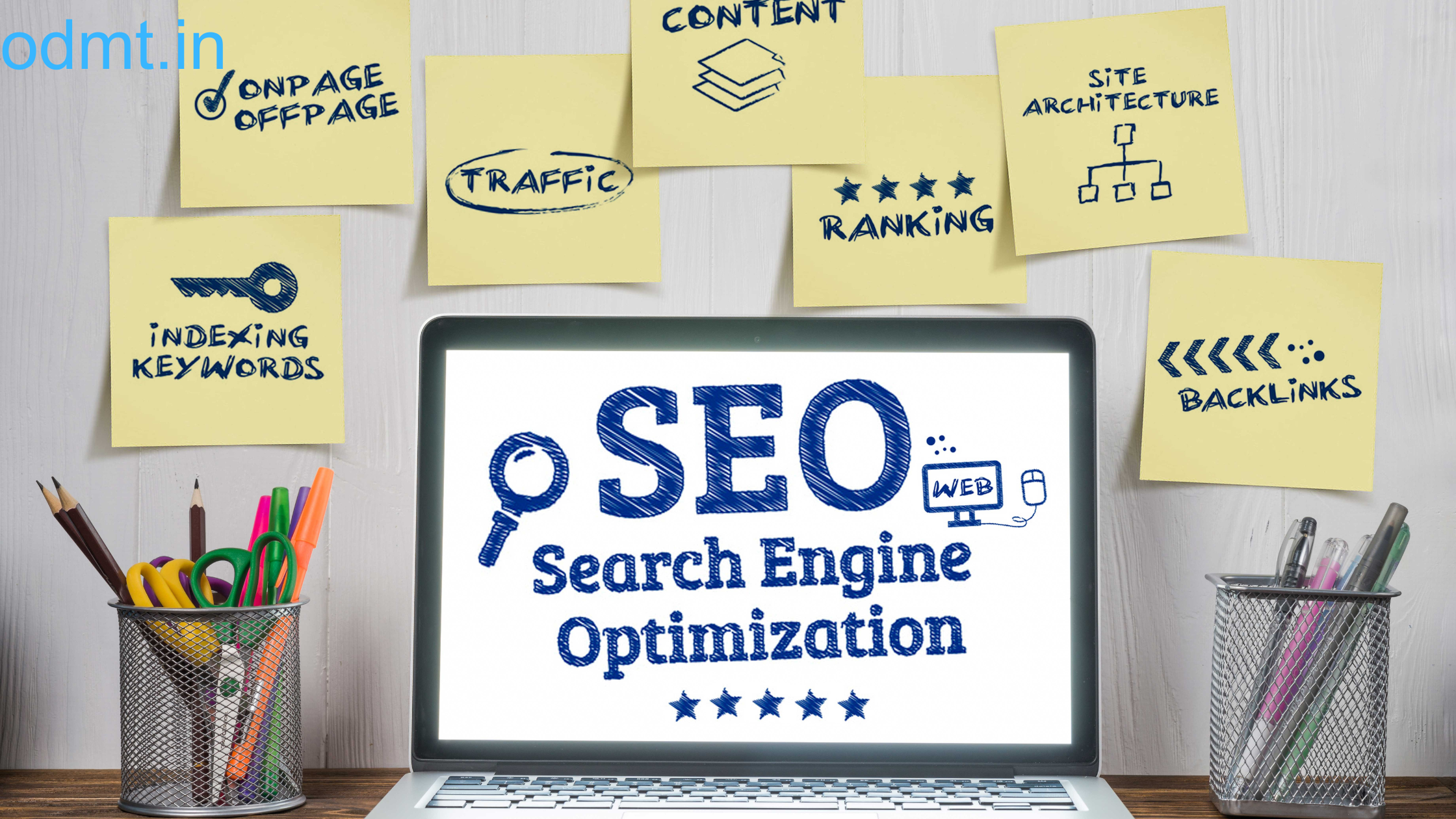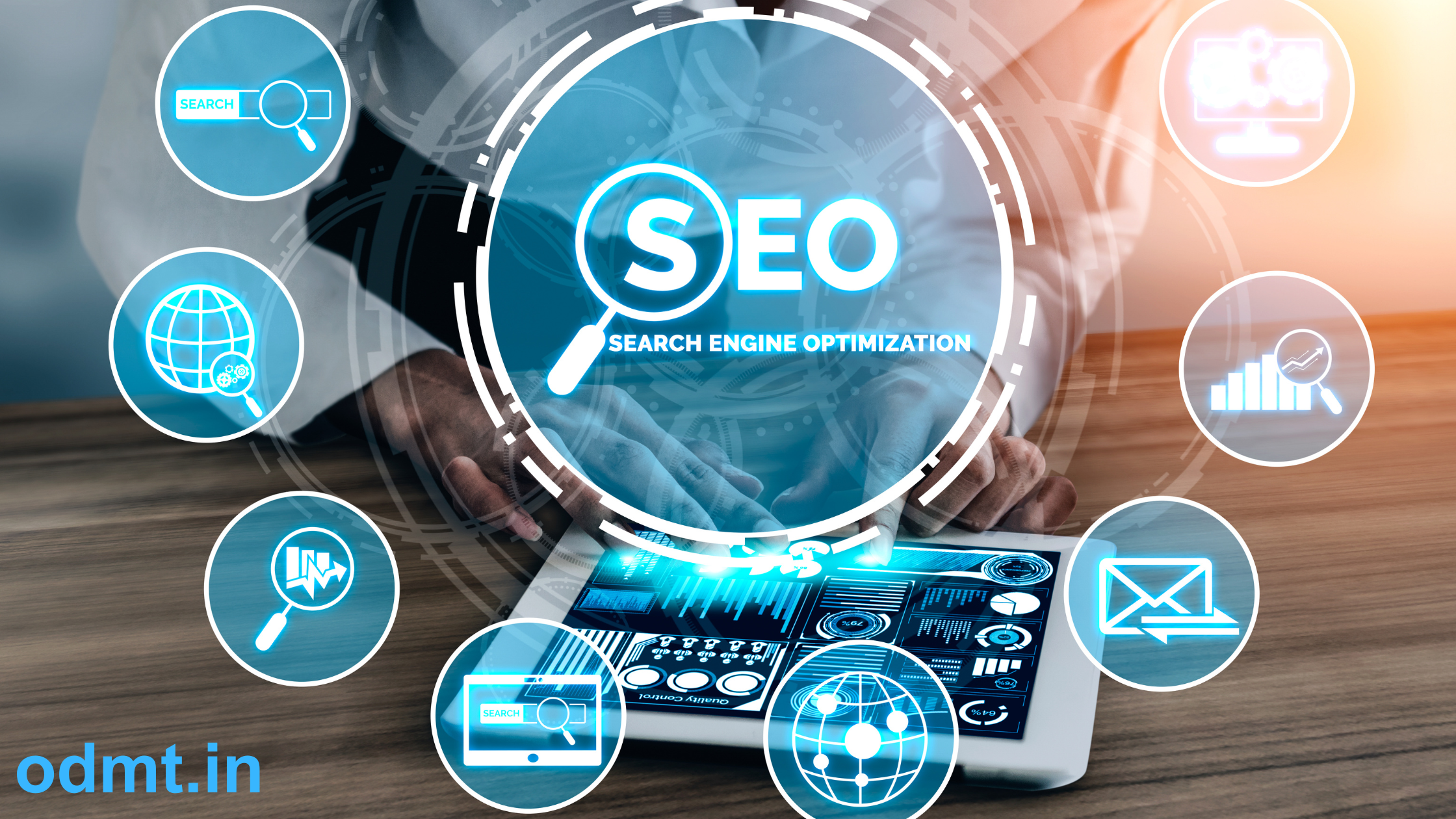SEO:
SEO (Search Engine Optimization) is the practice of optimizing a website to improve its visibility in search engine results pages (SERPs). It is a digital marketing strategy that helps websites rank higher in search engines like Google, Bing, and Yahoo, making it easier for users to find relevant information, products, or services. SEO involves a combination of technical, on-page, and off-page strategies to enhance a website’s performance and authority.
Why is SEO Important?
SEO is essential for businesses, bloggers, and website owners because it helps increase organic (non-paid) traffic. A higher ranking on search engines leads to greater visibility, which can result in more visitors, conversions, and revenue. Without proper SEO, even well-designed websites may struggle to attract visitors.

Key Components of SEO:
- On-Page SEO
- Keyword Research: Identifying relevant search terms that users type into search engines.
- Content Optimization: Creating high-quality, relevant, and keyword-rich content that meets users’ needs.
- Meta Tags: Writing compelling title tags and meta descriptions to improve click-through rates.
- URL Structure: Keeping URLs short, descriptive, and keyword-friendly.
- Internal Linking: Connecting related pages on a website to enhance navigation and SEO value.
- Off-Page SEO
- Backlinks: Gaining links from reputable websites to increase authority and credibility.
- Social Signals: Engagement on social media platforms that can indirectly boost SEO rankings.
- Guest Posting: Writing articles for other websites to build backlinks and establish authority.
- Technical SEO
- Website Speed Optimization: Ensuring fast-loading pages for better user experience.
- Mobile-Friendliness: Making the website responsive and easy to use on mobile devices.
- XML Sitemaps: Helping search engines index website pages efficiently.
- Secure Website (HTTPS): Implementing SSL certificates for secure browsing.
How SEO Works
Search engines use algorithms to determine which websites should appear in search results. These algorithms analyze factors such as content quality, website structure, user experience, and backlinks. SEO helps websites meet these criteria, increasing their chances of ranking higher.
Types of SEO
- White Hat SEO: Ethical SEO practices that follow search engine guidelines.
- Black Hat SEO: Unethical techniques that try to manipulate search rankings (e.g., keyword stuffing, cloaking).
- Gray Hat SEO: A mix of white and black hat techniques, often risky but sometimes effective.
Conclusion
SEO is an ongoing process that requires continuous optimization and monitoring. By implementing strong SEO strategies, websites can improve their search rankings, attract more visitors, and achieve long-term online success. Whether for businesses, bloggers, or online stores, SEO is a crucial factor in digital marketing.
